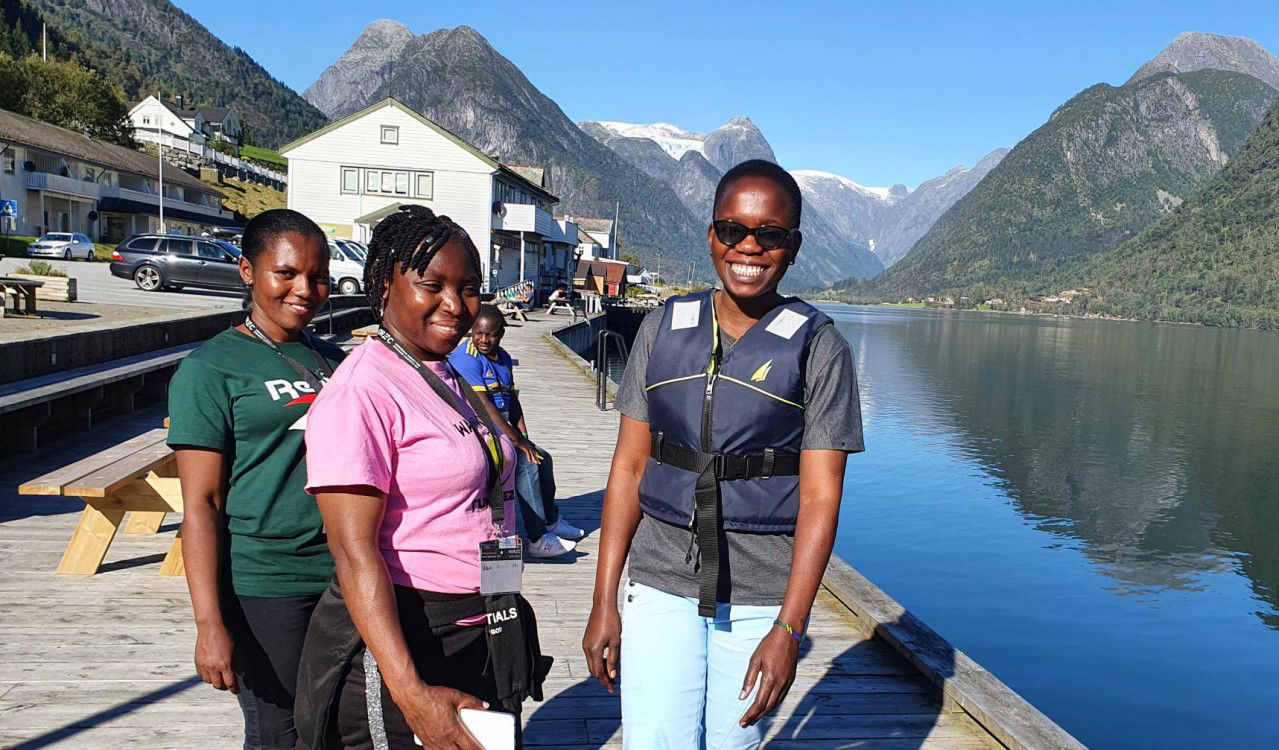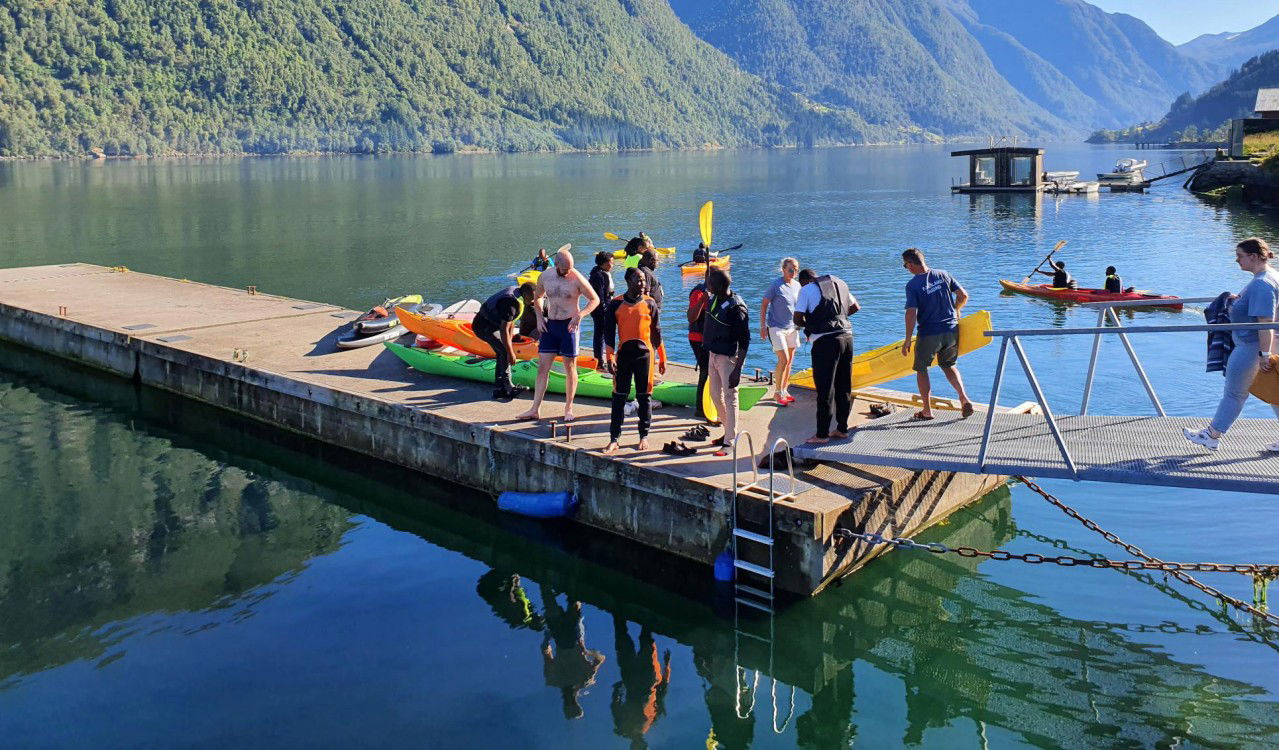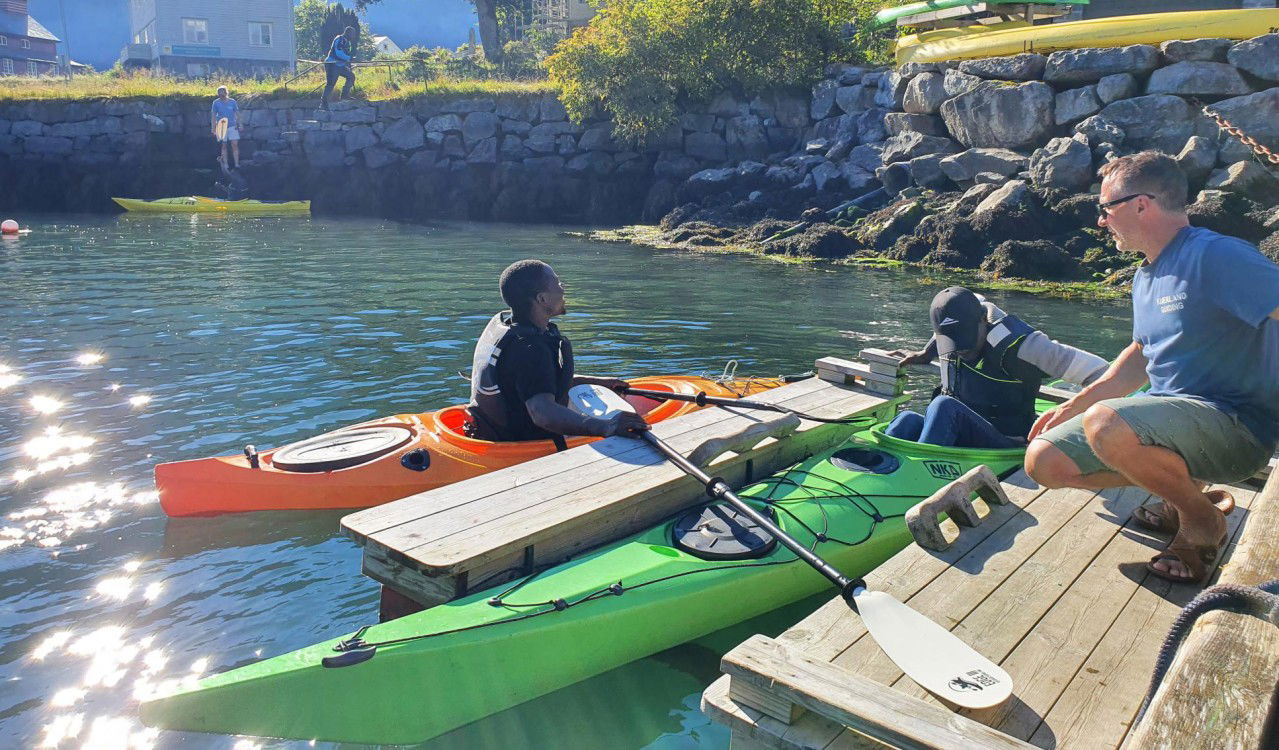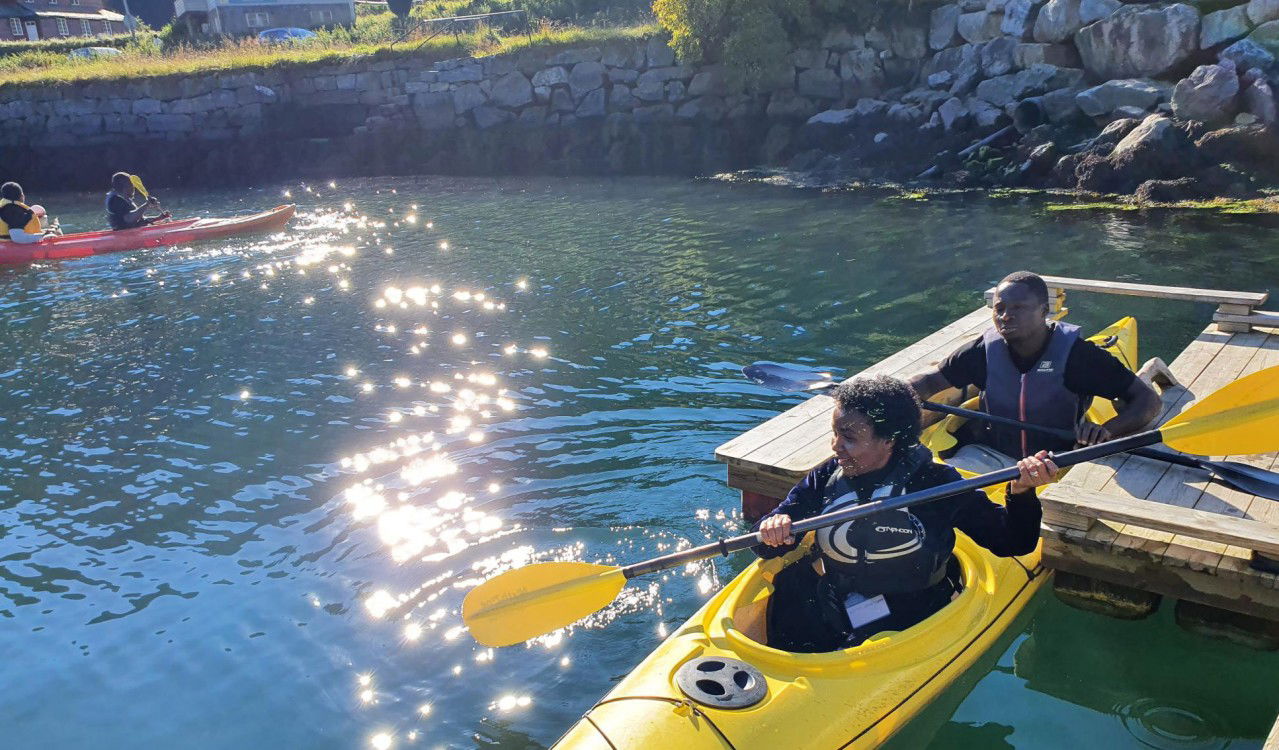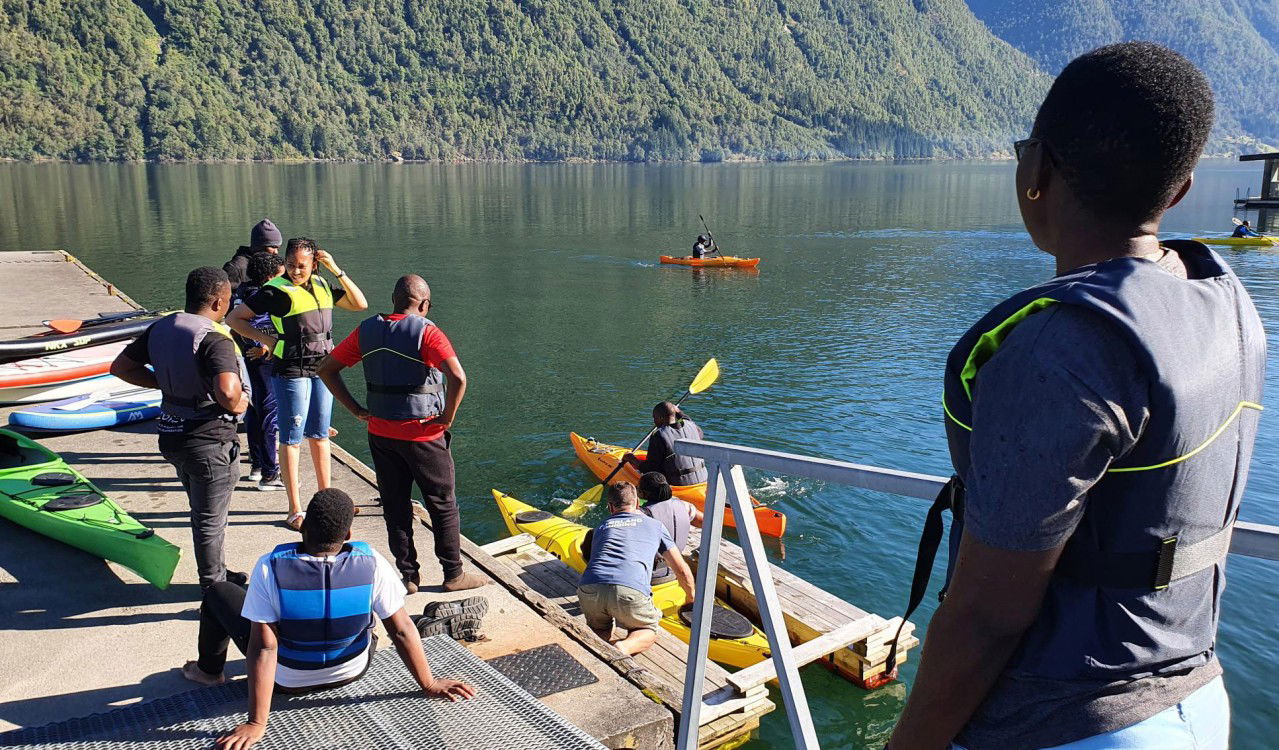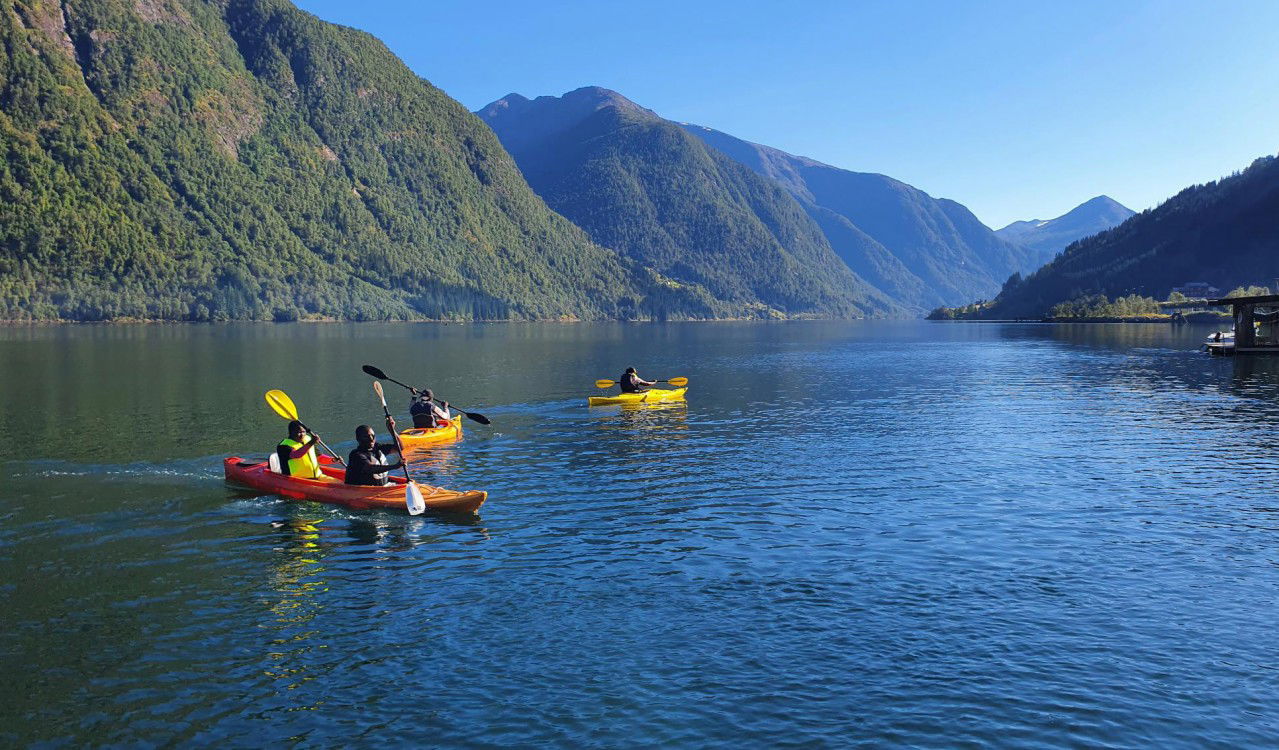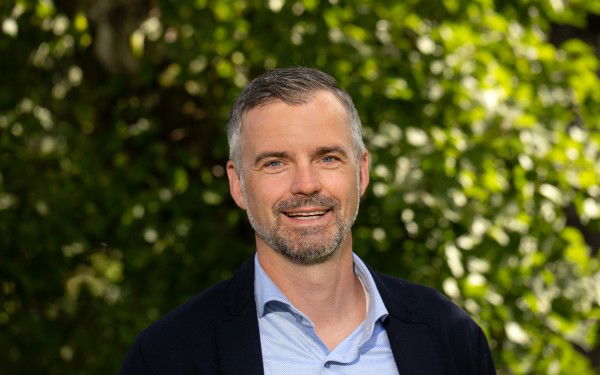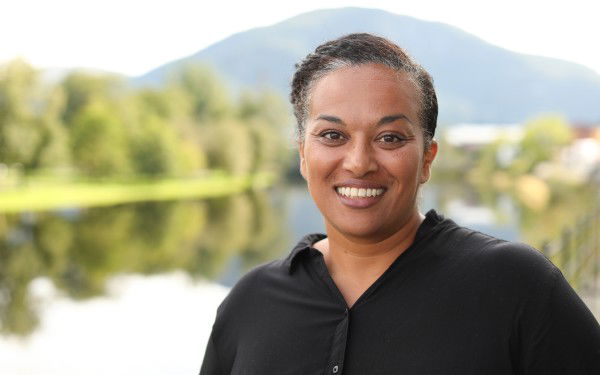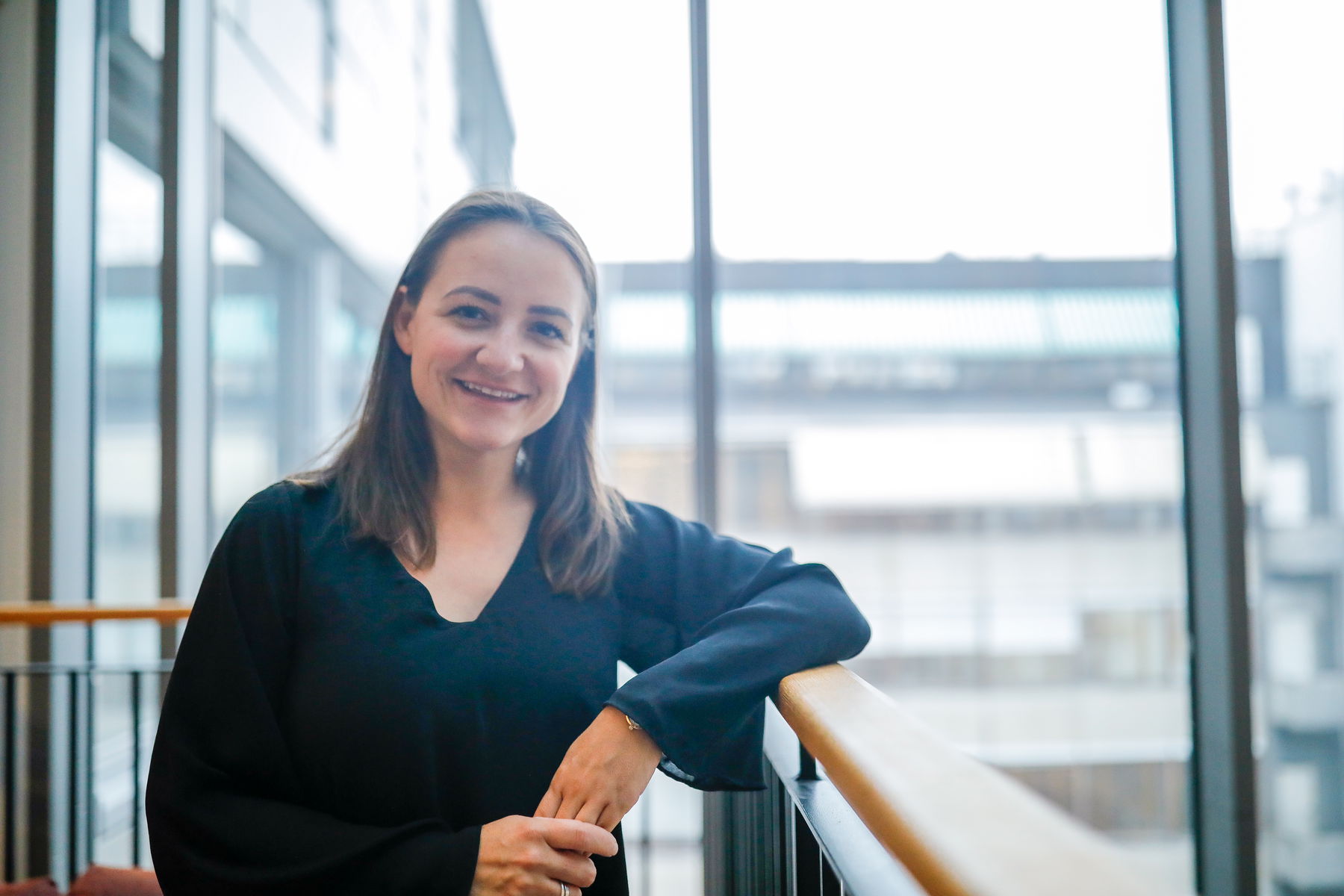First exchange course to be held in Førde
15. September 2022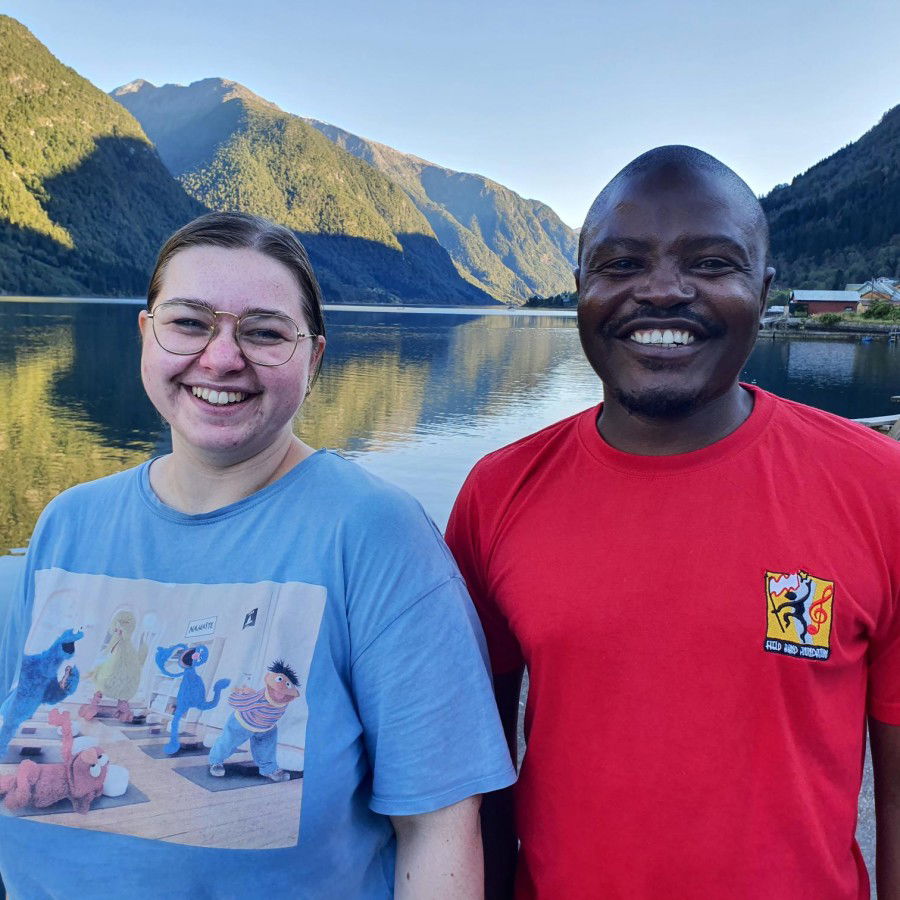
Norec were proud to invite participants to their very first exchange course in Førde. It may have been the first, but is sure not to be the last.
“It’s great to have an exchange course here in Førde. We get to see Norec’s offices and meet the programme advisors. That’s important,” says Vuyani Mukandi.
He is taking part on the course via the Field Band Foundation, and is due to go on exchange next year, visiting the Norwegian brass band association NMF in Bergen. Together with 21 participants from South Africa, Tanzania and Norway, he attended the exchange course in Førde in September.
All participants taking part on an exchange via Norec have to complete an exchange course, preparing them for living and working in a new cultural context. On the course, they gain an insight into Norec’s exchange model, obligations and responsibilities, ethical conduct and cultural understanding, among other subjects.
Important lessons
Vuyandi Mukandi explains how the visit to Førde had an extra dimension, as the participants were able to take part in different activities in the evenings.
“On the exchange course, we learned a lot about things we need to know when we go on exchange. We also had a lot of great experiences and activities in addition to the course,” he says.
Mette Dahl Hanssen (24) from Porsgrunn is going on exchange for the NMF and will be visiting the Field Band Foundation in Johannesburg, South Africa, next year. She agrees with Vuyandi’s views about being able to take the course in Førde.
“It’s a great idea to have the exchange course in Førde. I think it’s important for people going on exchange to have a relationship with Norec and learn more about Norec’s role in the project. It’s particularly important to meet and have conversations with the programme advisors, who will be our contact persons,” she says.
She is full of praise for the instructors who held the exchange course at Norec, and feels she is now fully prepared for the year ahead.
“It was particularly valuable to learn about cultural differences and what they imply,” she explains.
Providing greater flexibility
Norec made a conscious decision to arrange the autumn exchange course in Førde.
“We try to find locations for courses so that the participants have minimum travel. If we are going to arrange courses in Norway, we might as well have them here in Førde, instead of Gardermoen or Bergen, for example,” says Øystein Garfors, Head of Section ─ Training.
Organising courses in the town where Norec has its offices provides greater flexibility and access to course-related resources.
“We can make use of more of our personnel, utilise even more of our in-house expertise, and it allows the participants to see where we work and meet all the people who work here,” he says.
Plan to have more courses in Førde
He goes on to explain how having the courses locally allows them to entertain the participants with exciting activities in Førde and the surrounding area, when they are not working on the course.
“We get to show them the very best of West Norway when it comes to landscapes, and they can enjoy all the great things Førde and the area can offer,” he says.
Among the activities for the 22 participants was a visit to Fjærland where they went canoeing on the fjord. They also visited the Glacier Museum in Fjærland to learn about climate change. Another activity during the week-long course was a visit to the Western Norway University of Applied Sciences.
“In terms of content, our courses are even better when we organise them here in Førde, so we plan to continue with this when possible,” concludes Øystein Garfors.


